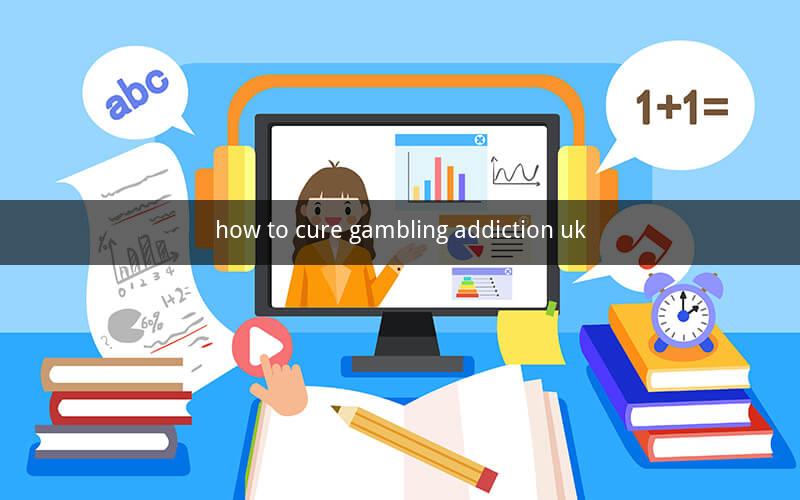
How to Cure Gambling Addiction in the UK
Table of Contents
1. Understanding Gambling Addiction
2. The Impact of Gambling Addiction
3. Identifying Signs of Gambling Addiction
4. Seeking Professional Help
5. Self-help Strategies
6. Support Groups and Community Resources
7. Legal and Ethical Considerations
8. Treatment Options in the UK
9. The Role of Family and Friends
10. Long-term Recovery and Relapse Prevention
1. Understanding Gambling Addiction
Gambling addiction, also known as problem gambling, is a chronic condition characterized by an inability to control the urge to gamble. It can lead to significant financial, emotional, and social consequences. In the UK, gambling is legal and widely available, making it easier for individuals to develop an addiction.
2. The Impact of Gambling Addiction
Gambling addiction can have severe consequences for individuals and their families. Financial losses can lead to debt, eviction, and even bankruptcy. Emotionally, individuals may experience depression, anxiety, and relationship problems. Socially, gambling addiction can isolate individuals from friends and family, leading to feelings of loneliness and isolation.
3. Identifying Signs of Gambling Addiction
Recognizing the signs of gambling addiction is crucial for seeking help. Common signs include:
- Spending more time and money on gambling than intended.
- Feeling restless or irritable when unable to gamble.
- Continually chasing losses.
- Lying to hide gambling activities.
- Neglecting responsibilities at work, school, or home.
4. Seeking Professional Help
Professional help is essential for overcoming gambling addiction. In the UK, various treatment options are available, including therapy, counseling, and residential programs. It's important to find a therapist or counselor with experience in treating gambling addiction.
5. Self-help Strategies
Self-help strategies can complement professional treatment. These may include:
- Setting a budget for gambling activities.
- Avoiding trigger situations and places.
- Using self-exclusion programs to restrict access to gambling sites.
- Engaging in healthy activities to replace gambling.
6. Support Groups and Community Resources
Support groups and community resources can provide additional support and guidance. Groups like Gamblers Anonymous offer a safe and supportive environment for individuals struggling with gambling addiction.
7. Legal and Ethical Considerations
The UK government has implemented measures to address gambling addiction. These include stricter advertising regulations and the introduction of self-exclusion schemes. Ethically, it's important for gambling operators to promote responsible gambling and provide resources for those struggling with addiction.
8. Treatment Options in the UK
The UK offers a range of treatment options for gambling addiction:
- Cognitive-behavioral therapy (CBT): Helps individuals identify and change negative thoughts and behaviors associated with gambling.
- Contingency management: Provides rewards for positive behavior changes, such as not gambling.
- Motivational interviewing: Assists individuals in exploring their motivation to change their gambling behavior.
- Residential programs: Offer a structured environment for individuals to focus on recovery.
9. The Role of Family and Friends
Family and friends play a crucial role in supporting individuals with gambling addiction. They can:
- Encourage the individual to seek help.
- Offer emotional support and encouragement.
- Learn about gambling addiction to better understand the situation.
- Participate in family therapy or support groups.
10. Long-term Recovery and Relapse Prevention
Long-term recovery from gambling addiction requires ongoing commitment and effort. Relapse prevention strategies include:
- Continuing therapy and support group participation.
- Developing healthy coping mechanisms.
- Monitoring gambling behavior and recognizing triggers.
- Celebrating milestones and progress.
Questions and Answers
1. What is the most effective treatment for gambling addiction in the UK?
- The most effective treatment depends on the individual's specific needs. Cognitive-behavioral therapy (CBT) is often considered the gold standard.
2. Can gambling addiction be cured completely?
- While complete recovery is possible, gambling addiction is a chronic condition that requires ongoing management and support.
3. Are there any medications available to treat gambling addiction?
- Currently, there are no medications specifically approved for treating gambling addiction.
4. How can I tell if someone I know has a gambling addiction?
- Look for signs such as increased time spent on gambling, financial difficulties, and changes in behavior.
5. What should I do if I suspect I have a gambling addiction?
- Seek professional help from a therapist or counselor specializing in gambling addiction.
6. Can I recover from gambling addiction without professional help?
- While self-help strategies can be helpful, professional help is often necessary for successful recovery.
7. How long does it take to recover from gambling addiction?
- Recovery can vary from person to person, but it often requires months or even years of ongoing effort.
8. What can I do to support a loved one with gambling addiction?
- Offer emotional support, encourage them to seek help, and educate yourself about the condition.
9. Are there any support groups available for family members of gambling addicts?
- Yes, organizations like Gam-Anon provide support for family members and friends of individuals with gambling addiction.
10. How can I prevent a relapse after recovering from gambling addiction?
- Continue therapy, develop healthy coping mechanisms, and be vigilant about triggers and high-risk situations.